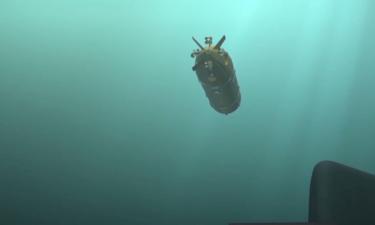Argentina's Kirchner, a Robespierre without guillotine
Making real the desires of justice of great part of Argentina's population, the new President Nestor Kirchner quickly took the offensive against the worse reputed powers of the country. After retiring tens of Army Generals, Navy Admirals and Air Force Commanders, Kirchner's new target is the broadly questioned Supreme Court of Justice appointed by former President Carlos Menem.
President Kirchner last week asked the Congress to speed up the impeachment process over "some members" of the main tribunal. Clearly, Kirchner made reference to those members that, after being appointed by Menem, shaped the so-called "automatic majority" (five of nine) that backed Menem's controversial decisions during the nineties.
However, Kirchner's main object is to separate from his post to Julio Nazareno, President of the Supreme Court, of probed links to Menem. "He is part of a past that does not want to change", said Kirchner in a recent TV statement. Notwithstanding, Nazareno repeatedly declared that he was not going to resign and suggestively made reference to a number of outstanding rulings that could endanger economy's precarious stability.
"We need the help of Argentina's citizenship to back down the tentative of pressure", denounced Kirchner, referring to Nazareno's declarations. Then, the head of State appealed to the lawmakers in charge of the impeachment committee to "preserve the institutions from those men who endanger them" and asked for immediate action.
Opinion surveys show a great support on Kirchner's first actions. His popularity jumped to 60% and only 8% of the population stood against him. Latest surveys read that over 90% of the Argentineans want Kirchner to remove the Supreme Court of Justice. On his recent visit to Buenos Aires, US State Secretary Colin Powell did not object the offensive against the tribunal, despite pressures from some member of the US Supreme Court.
Kirchner's offensive against the Supreme Court of Justice came shortly after the new President "cut the heads" of almost 50 Army commanders accused of lobbying to obtain immunity for other members of the force facing human right abuses charges. He also ordered the retirement of ten Federal Police officers suspected of being connected to crime organizations.
The mani pulite process has been questioned by some legislators that fear Kirchner's enthusiasm could lead to a general confrontation of powers. Elisa Carrio, leader of the center-left coalition Argentineans for a Republic of Equals (ARI) asked Kirchner to go "step by step" not to open too much fronts at the same time.
However, there is little space in today's Argentina to criticize Kirchner's policy, as denounces against the Army, the Supreme Court and the Federal Police are quite serious and consistent. It is, therefore, a matter of methods.
As in 1793's French controversy over the fate of Louis XVI, when Robespierre and Condorcet discussed whether to kill the King immediately or after a due legal process, Argentina faces a similar situation. There is no discussion about the King; the question is if Jacobinism is strong enough to prevail.
Subscribe to Pravda.Ru Telegram channel, Facebook, RSS!





